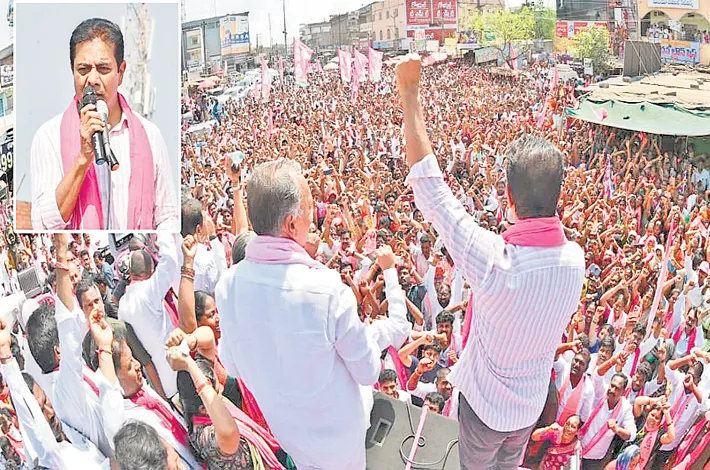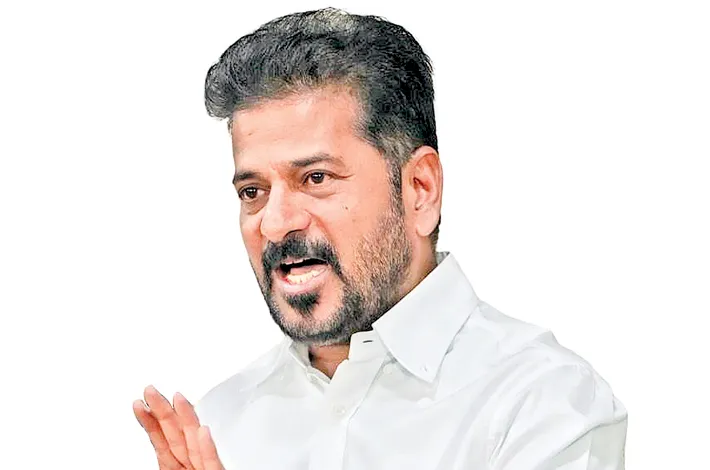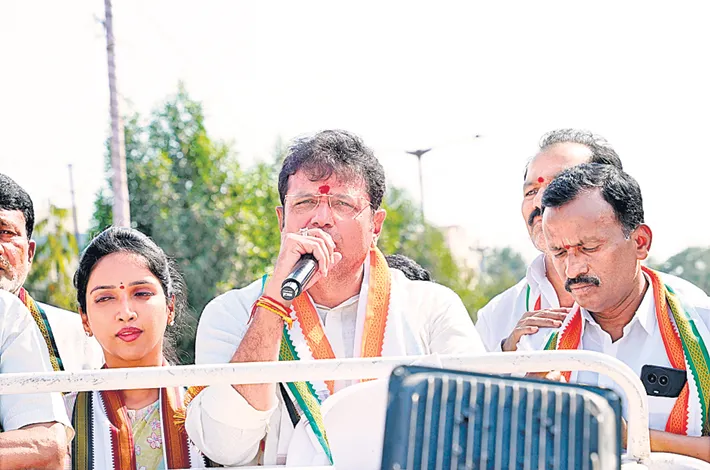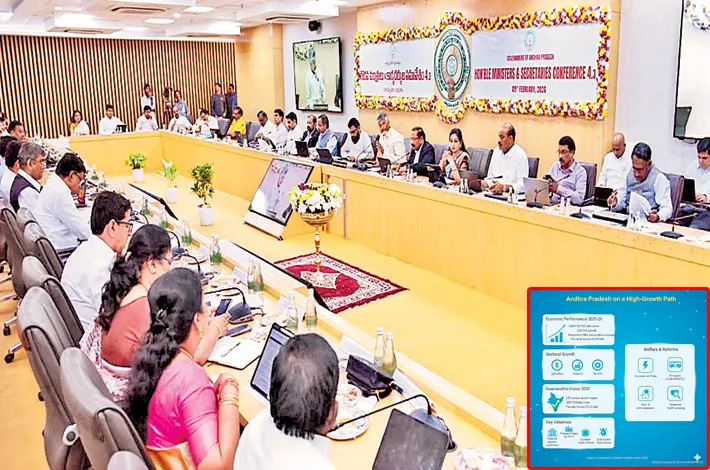The Shadow of the Loom
25-04-2025 12:00:00 AM
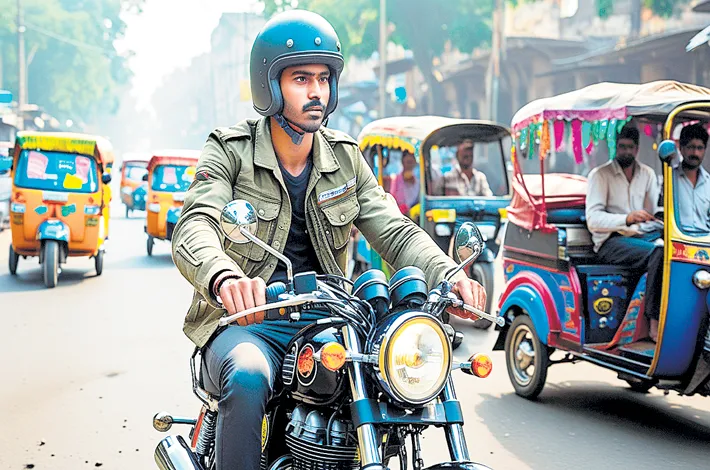
Arjun issued an alert for Vikram, but Coimbatore’s textile markets were a labyrinth, perfect for disappearing. He leaned on local informants, street vendors, and chai stall owners. A tip came from a dosa cart near Gandhipuram: Vikram was hiding in a derelict warehouse by the Noyyal River
Coimbatore, Tamil Nadu, 2025. The city hummed with its usual rhythm—textile mills churning, horns blaring, and the scent of filter coffee lingering in the air. But beneath the bustle, a darkness stirred. Detective Arjun Vijay, a grizzled 38-year-old with a penchant for kolhapuri sandals and a sharp mind, sat in his cluttered office at the Race Course Police Station. His desk was a chaos of case files, coffee stains, and a half-eaten plate of idlis. The phone rang, shattering the monotony.
“Arjun, we’ve got a body,” said Inspector Kavya, her voice taut. “Textile merchant, Ramesh Iyer. Found in his godown near RS Puram. Looks like murder.”
Arjun grabbed his khaki jacket and rode his Bullet through Coimbatore’s chaotic streets, weaving past auto-rickshaws and roadside dosa stalls. The godown, a cavernous warehouse stacked with bales of cotton and silk, reeked of oil and death. Ramesh Iyer’s body lay sprawled near a loom, his throat slit clean, a crimson pool soaking the concrete. His eyes, wide open, stared at the ceiling as if accusing the shadows.
“Time of death?” Arjun asked the forensic officer, squatting beside the body.
“Between 11 PM and 1 AM,” the officer replied, pointing to the coagulated blood. “No signs of struggle. Killer was quick, precise.”
Arjun scanned the scene. No fingerprints, no weapon, just a single clue: a torn piece of indigo-dyed fabric clutched in Ramesh’s hand. It was coarse, handwoven, unlike the mass-produced textiles in the godown. “Bag this,” Arjun told Kavya. “And get me Ramesh’s financials. Someone wanted him dead, and I want to know why.”
Back at the station, Arjun dug into Ramesh’s life. The 50-year-old merchant was a titan in Coimbatore’s textile trade, but his empire was fraying. Debts piled up, suppliers unpaid, and whispers of shady deals with a Mumbai syndicate. His phone records showed late-night calls to an untraceable number. Arjun’s gut churned—Ramesh was no saint, but who had the nerve to kill him in his own turf?
The indigo fabric nagged at Arjun. He visited a local weaver’s cooperative in Sirumugai, a village on Coimbatore’s outskirts known for handwoven textiles. An elderly weaver, Amma, examined the scrap. “This is Korai silk,” she said, her fingers tracing the weave. “Only a few families in Sirumugai still make it. Look for the Selvamani family—they use this exact indigo dye.”
Arjun tracked down the Selvamani household, a modest home with a backyard loom. The patriarch, Murugan, was cagey, his eyes darting when Arjun mentioned Ramesh. “We supplied him small batches,” Murugan admitted. “But he stopped paying months ago. Owed us lakhs.” His son, Karthik, a wiry 25-year-old, hovered nearby, his fists clenched. Arjun noticed a fresh cut on Karthik’s hand. “Accident at the loom,” Karthik muttered, avoiding eye contact.
Suspicion gnawed at Arjun, but motive wasn’t enough. He needed evidence. That night, he staked out the Selvamani home from his bike, parked under a tamarind tree. At 2 AM, Karthik slipped out, carrying a bundle. Arjun tailed him to an abandoned mill on Trichy Road. Inside, Karthik met a man in a hooded jacket, handing over what looked like a bloodied knife wrapped in cloth. Arjun’s pulse raced. He snapped photos with his phone, but a twig cracked under his foot. The hooded man bolted, and Karthik froze, spotting Arjun.
“Police! Don’t move!” Arjun shouted, drawing his service pistol. Karthik lunged, knocking Arjun into a pile of rusted machinery. Pain shot through Arjun’s ribs, but he tackled Karthik, cuffing him after a brief struggle. “Who’s your partner?” Arjun demanded, hauling Karthik to his feet.
Karthik’s defiance cracked. “I didn’t kill Ramesh,” he gasped. “I just… cleaned up. It was Vikram—Ramesh’s business partner. He said Ramesh was going to rat him out to the Mumbai syndicate. Vikram paid me to get rid of the knife.”
Arjun’s mind raced. Vikram Nair, Ramesh’s suave partner, had been too clean in the initial interviews—polished alibis, no debts. Arjun dragged Karthik to the station and pulled Vikram’s financials. A hidden account showed transfers to a Sirumugai bank, matching Karthik’s story. But Vikram was slippery. By dawn, he’d vanished, his RS Puram bungalow empty except for a single indigo thread on the floor.
Arjun issued an alert for Vikram, but Coimbatore’s textile markets were a labyrinth, perfect for disappearing. He leaned on local informants, street vendors, and chai stall owners. A tip came from a dosa cart near Gandhipuram: Vikram was hiding in a derelict warehouse by the Noyyal River. Arjun and Kavya raided the site at dusk, the river’s stench thick in the air. Inside, Vikram was packing a suitcase, a one-way ticket to Dubai on the table.
“Going somewhere?” Arjun said, blocking the exit. Vikram smirked, but his eyes betrayed panic. “You’ve got nothing on me, Vijay.”
“Try Karthik’s confession and your bank transfers,” Arjun shot back. Vikram lunged for a crowbar, but Kavya was faster, her baton cracking against his wrist. Vikram crumpled, cuffed and cursing.
At the station, Vikram’s story unraveled. Ramesh had discovered Vikram’s side deals with the syndicate, skimming profits. Threatened with exposure, Vikram lured Ramesh to the godown, slit his throat, and paid Karthik to dispose of the evidence. The indigo fabric was a mistake—Vikram had grabbed it to clean the blade, not realizing it would lead back to Sirumugai.
As Vikram was booked, Arjun stood outside, lighting a cigarette. Coimbatore’s skyline glowed under the sodium lights, its mills still spinning. The case was closed, but the city’s shadows would always hide another secret, another crime. Arjun flicked the cigarette away and rode into the night, ready for the next call.





